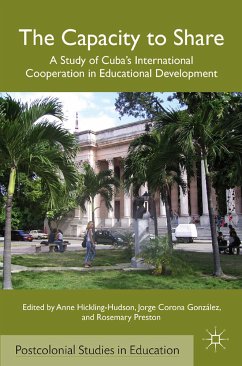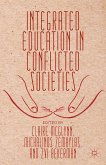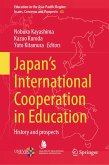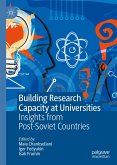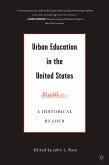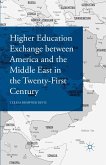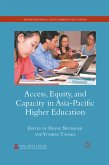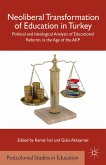Dieser Download kann aus rechtlichen Gründen nur mit Rechnungsadresse in A, B, BG, CY, CZ, D, DK, EW, E, FIN, F, GR, HR, H, IRL, I, LT, L, LR, M, NL, PL, P, R, S, SLO, SK ausgeliefert werden.
'This is a pioneering, authoritative volume on Cuba's internationalism in education. It provides a comprehensive conceptual framework of the profound impact of Cuban educational and cultural exchanges and sharing with partner countries around the globe. The case studies and firsthand accounts of those who came to Cuba to learn, and of Cubans who went abroad to share skills and expand knowledge, illuminate a postcolonial alternative model of South-South cooperation. Kudos to authors/editors Hickling-Hudson, Corona Gonzalez, and Preston for this invaluable contribution to scholarship and to our understanding of more enlightened international aid policies and practices.' - Robert F. Arnove, Chancellor's ProfessorEmeritus of Educational Leadership and Policy Studies, Indiana University, Bloomington
'The Capacity to Share is a deeply important contribution to the international aid and development discussion. It documents the extraordinary story of Cuba's role in global development, assisting over 120 other low-income countries by providing them during the past 50 years with many thousands of Cuban scholarships, medical personnel, teachers and engineers. Cuba has done this on the basis of the simple principle of solidarity an international sense of brotherhood and sisterhood. This demonstrates to the world a way of being that does not need to be activated by 'winning', by patronizing charity, by being 'on top'. All that counts is our common humanity. We must all be grateful to Anne Hickling-Hudson, Jorge Corona Gonzalez, and Rosemary Preston for authoring, encouraging, and editing this book.' - Crain Soudien, Deputy Vice Chancellor, University of Cape Town; Past President of the World Council of Comparative and International Education Societies (WCCES)
'The Capacity to Share is an exceptional resource for scholars. It brings to life Cuban educational policy and the little-studied principles and practices of internationalism that have made Cuba's commitment to 'sharing' integral to the revolutionary educational project. This matchless collection offers a postcolonial frame for engaging pressing issues of educational development in the 21st century world. The analytical essays, case studies, narratives, and testimonials explore with rich detail the achievements of the Cuban system that have created the capacity to share personnel and expertise with other countries in the global south. Within complex political realities, Cuba's promotion of solidarity and South-South cooperation becomes a compelling alternative. With ample evidence and the critical insights of scholars from inside and outside Cuba, The Capacity to Share contributes uniquely to our understanding of the histories and the heuristics of Cuba's educational internationalism.' - Sheryl Lutjens, Chair of Women's Studies at California State University, San Marcos

